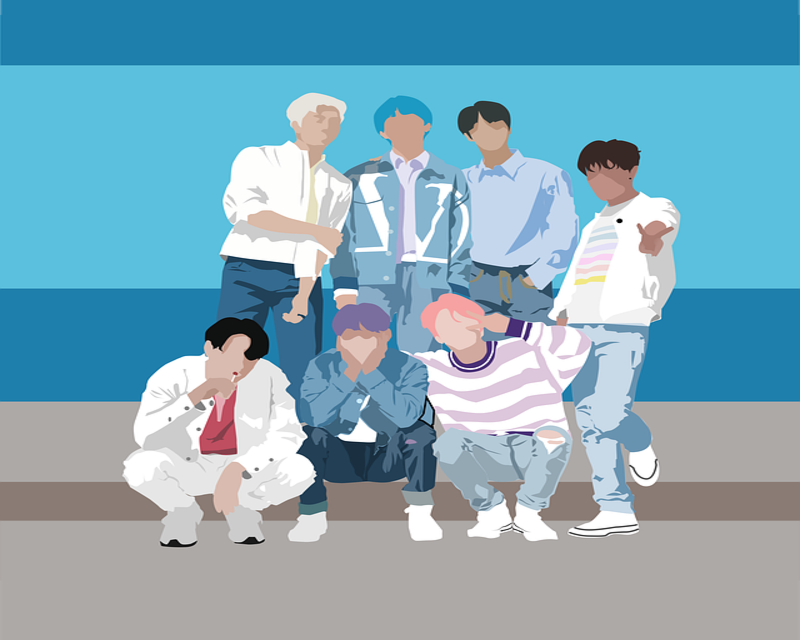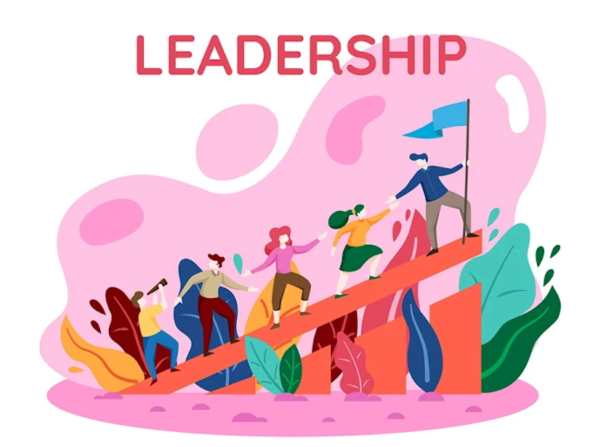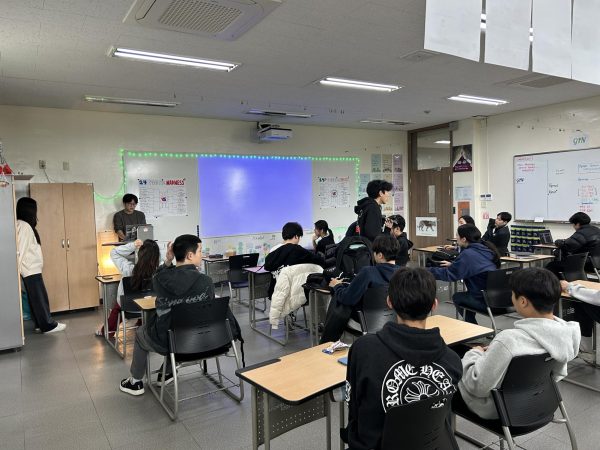BTS is not just a boy band
Oct 19, 2021
On Sept. 20, the United Nations invited BTS as a special envoy to President Moon Jae-in for its annual Sustainable Development Goals (SDG) Moment. At the conference, BTS performed its most recent popular song, “Permission to Dance.” But their appearance at the UN sparked controversy, with people questioning whether boy bands were appropriate guests at serious events.
People such as James Corden, the host of the Late Late Show With James Corden, voiced doubt by remarking on Twitter that BTS was an “unusual visitor” to the UN. However, ARMY, the fandom of BTS, lashed back at Corden, causing his show rating to drop from above four stars to two-and-a-half stars out of five.
Though the use of BTS’s popularity as a means to spread political messages may seem inappropriate, their engagement in global movements and meaningful song lyrics raise greater awareness amongst the younger generation, who may otherwise be indifferent to global issues.
Listening to another political figure discussing the SDG may not be so engaging to younger audiences. But as part of the BTS generation, young people will pay more attention to BTS’s words and relate to them. As a more familiar source to its young followers, BTS could expand youth participation in worldwide issues.
“I do not believe that BTS is just a boy band,” Emily McClintock, high school Spanish teacher and avid BTS fan, said. “What BTS conveys through music is genuine. Unlike general topics other boy bands cover, BTS focuses on political and social taboo topics. Listening to BTS’s music inspires and empowers younger followers to make world changes. As part of the younger generation, I feel connected to BTS not only because their music is great, but also for what they promote through lyrics.”
BTS’s music also makes political movements more engaging. Their self-written and self-produced songs make surprisingly deep commentary about modern socio-political topics, such as women’s empowerment, toxic masculinity, and capitalism. Many of their lyrics address sensitive ideas that are left undiscussed by the general public, making BTS’s role as cultural icons all the more important. In the pop-dominated culture of Korea, music is an effective tool to not only raise awareness, but also to teach younger generations about the existing issues.
Still, as influential as BTS may be, some may find issues with the fact that they seem unqualified to be making political speeches. After all, even if they are popular and have insightful lyrics, they are not necessarily fit to play such a prominent role in an internationally recognized stage such as the UN.
But those detractors must recognize that it is no longer possible to compare BTS to most other entertainers. BTS’s influence and role in the world extend beyond the scope of any boy bands of the past: they have become a symbol of Korea. At a culturally significant time for Korea following the Korean drama series “Squid Game ” rising to global popularity, BTS reinforced the prominence of Korean culture and made good use of their position. As cultural influencers also making a political impact on aspiring young global citizens, BTS was definitely an appropriate guest at the UN.
During BTS’s 2018 UN lecture, Rap Monster (RM), the group’s leader, said, “No matter who you are, where you’re from, your skin color, gender, or identity: express yourself.” BTS has certainly lived up to their words since then by expressing themselves in every platform possible. BTS’s defiance of social norms and unique ability to resonate with the youth have given them nearly limitless influence and broken all preconceived notions about boy bands. As they continue to shape the minds of the younger generation, we must encourage their participation in battling global issues, not criticize them for it.

















